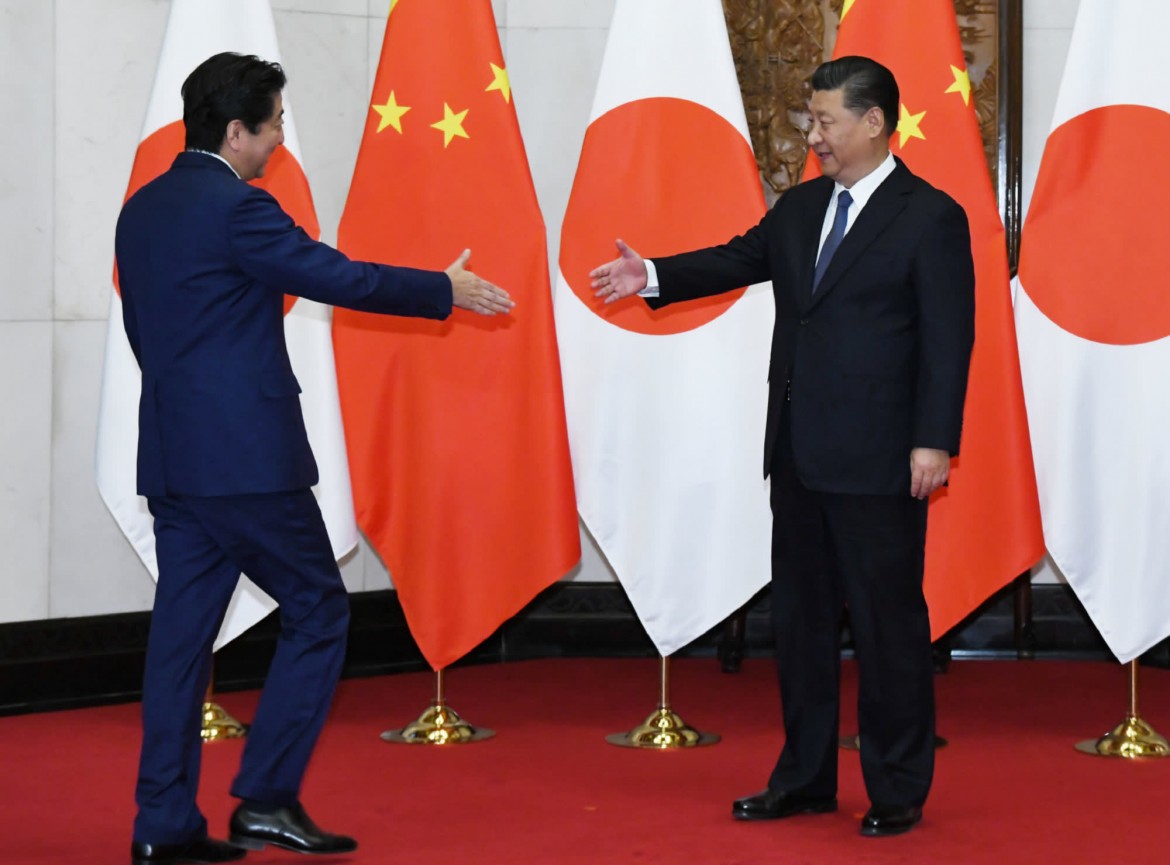Analysis
Trade deals worth $18 billion mark ‘new phase’ in China-Japan relations
Washington’s abandonment of foreign policy stability has created an opening for the thawing of old rivalries. Japanese Prime Minister Shinzo Abe traveled to Beijing this week to sign new trade deals and hash out regional power plays.

The slapdash foreign policy of American president Donald Trump, particularly with regard to Asia, has ended up creating entirely new scenarios for the continent. After Trump’s tanking of the TPP, it soon became clear that most Asian countries now believed it was necessary to look toward China. At the same time, this turn toward Beijing has certainly not allayed skepticism of Xi Jinping’s muscle-flexing, particularly in the South China Sea.
But, at least for the short term, countries that are important and decisive partner-competitors with the Chinese powerhouse have taken a greater interest in Chinese policies. Japan is certainly one of them.
Tokyo was not pleased with the collapse of the TPP, nor with Trump’s policy toward North Korea, thought to be too soft, and, most importantly, giving too little weight to Japan’s interests in the requests made to the Pyongyang regime. Shinzo Abe, whose management of the economy is in constant vacillation between positive results and sudden risk of collapse—a situation due in part to significant internal scandals that also involve his family—chose to move quickly. He first signed an important trade agreement with the European Union, and then turned his attention to China.
Over the past few days, Abe has been in Beijing to meet with the top leadership of the Communist Party: first and foremost Xi, and also Li Keqiang, the head of government. Abe arrived in Beijing together with 500 Japanese entrepreneurs, thus giving a very clear signal about his intentions for the meetings that followed.
As reported by The Washington Post—since, as is most often the case, the international press has recognized the true importance of this event much more than the Italian press—Abe told reporters that “Japanese and Chinese bilateral relations have entered a new phase.” In turn, Xi spoke of a “new historic direction” in the relationship between the two countries. The Chinese president said that “sound and stable development of China-Japan relations would fundamentally benefit the people of both nations, and that is something that the regional and the international community want.”
The 500 businessmen Abe brought with him have already signed deals worth $18 billion during the visit, as Premier Li pointed out.
They also signed bilateral agreements regarding mutual assistance for the elderly and the securities market, although the announcements were light on actual details. Notably, all these developments happened despite the longstanding historical mistrust between Tokyo and Beijing. According to the Post’s assessment, “for one, China is highly suspicious of Abe’s efforts to revise Japan’s pacifist postwar constitution, and for another, Tokyo thinks Beijing is intent on regional domination.”
“Now,” Abe said, “Japan and China are playing indispensable roles for economic growth not only in Asia but also in the whole world.” Furthermore, particularly because of the increase in the number of problems that cannot be solved by a single country, “Japan and China share a big responsibility for regional and world prosperity,” added the Japanese Prime Minister.
Saturday marked the diplomatic high point of Abe’s visit: according to reports in the Chinese media, he reviewed a guard of honor of the Chinese armed forces in a ceremony in front of the Great Hall of the People next to Tiananmen Square.
As reported by the press agency Agenzia Nova, “the meeting between Abe and Xi coincided with the signing of an agreement for the construction of 50 private infrastructure projects in third countries, which will form the core of the cooperation between the two countries within the framework of the New Silk Road. The first of these projects, according to Japanese government sources, will be that of an environmentally friendly ‘smart city’ in the Thai province of Chonburi, due to begin construction in the spring of next year.”
Originally published at https://ilmanifesto.it/abe-a-pechino-una-nuova-fase-nelle-relazioni-tra-cina-e-giappone/ on 2018-10-28
